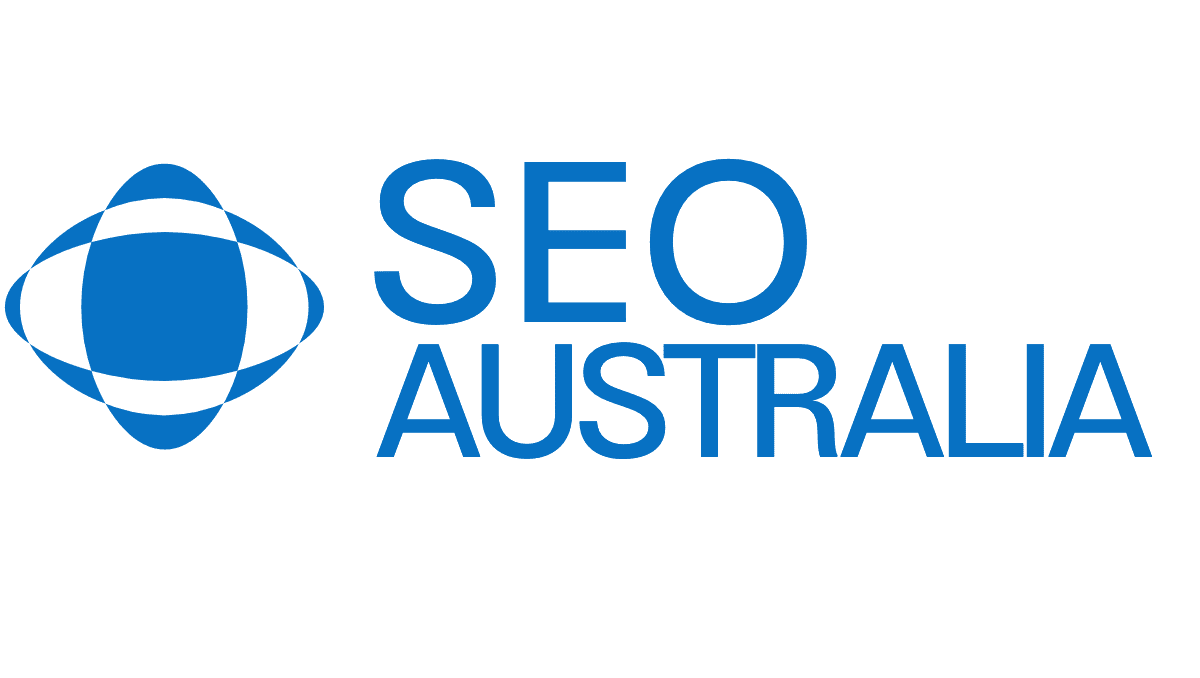Introduction to SEO Services
Understanding the Basics of SEO
Search Engine Optimisation (SEO) is a critical component of digital marketing. At its core, SEO involves optimising a website’s content and structure to improve its visibility on search engines like Google. This means when users search for specific keywords, a well-optimised website appears at the top of the search results. To break it down, here are some fundamental elements of SEO:
- Keyword Research: Identifying the terms your target audience is using to find services like yours.
- On-page SEO: Enhancing individual pages to rank higher and earn more relevant traffic.
- Off-page SEO: Building backlinks from other websites to improve domain authority.
Importance of Hiring Professional SEO Services
Navigating the complexities of SEO can be overwhelming. Many businesses find that hiring professional SEO services provides essential expertise that they do not have inside the business. Consider this:
- Experience: Professional agencies have a proven track record and are up-to-date with the latest trends.
- Time-Saving: Outsourcing allows businesses to focus on their core activities while experts handle SEO.
- Strategic Insights: Professionals can provide tailored strategies that align with specific business goals.
In the long run, investing in SEO services can significantly enhance online visibility and drive sustainable traffic to your website.
Determining Your SEO Needs
Identifying Your Business Goals
The first step in tailoring your SEO strategy is to clearly define your business goals. What do you aim to achieve with SEO? Common objectives include increasing website traffic, improving conversion rates, or enhancing brand awareness. Understanding these goals provides direction for your SEO efforts. For instance, a local cafe might want to rank higher for “best coffee in [City Name]” to attract more customers. Meanwhile, an e-commerce site could focus on boosting sales of specific products. When businesses have clear objectives, choosing the right SEO strategy becomes much easier.
Conducting a Website SEO Audit
Once goals are set, the next essential step is conducting a thorough website SEO audit. This process identifies strengths, weaknesses, and areas for improvement. Consider assessing:
- On-Page Elements: Title tags, meta descriptions, and keyword usage.
- Technical SEO: Website speed, mobile-friendliness, and indexing issues.
- Content Quality: Relevance, engagement, and originality.
An audit acts as a roadmap, helping to align your SEO strategy with your business goals, ensuring every effort made is purposeful and beneficial.
Researching and Shortlisting SEO Agencies
As businesses recognise the vital role of SEO in their digital marketing strategies, finding the right agency becomes crucial. Understanding the factors to consider when choosing an SEO agency can guide this important decision.
Factors to Consider When Choosing an SEO Agency
When researching SEO agencies, consider the following factors:
- Experience and Expertise: Look for agencies with a proven track record in your industry. For example, if you run an e-commerce site, an agency that has successfully optimised other e-commerce businesses will be beneficial.
- Client Testimonials and Case Studies: Reading reviews or case studies can provide insight into the agency’s effectiveness. A personal story is always refreshing—hearing how another business grew by 20% in six months can build confidence.
- SEO Strategies and Tools: Inquire about the tools and strategies they use. Effective agencies should be utilising the latest technology to stay ahead of Google’s algorithm changes.
Questions to Ask Potential SEO Service Providers
When you have shortlisted a few agencies, here are some questions to ask:
- What is your approach to SEO?
- Can you share examples of previous successes?
- How do you measure success?
- What services are included in your packages?
- How will you keep me informed about progress?
These questions not only clarify the agency’s capabilities but also help in establishing a strong partnership moving forward. An agency claiming to provide professional SEO services will handle these questions with aplomb, and instil you with confidence.

Evaluating SEO Proposals and Pricing
As businesses move forward in their SEO journey, evaluating proposals and pricing becomes a crucial step. This ensures that you choose the right SEO agency that meets your specific needs at a price that aligns with your budget.
Understanding Different SEO Pricing Models
SEO pricing can vary based on several models, making it essential to understand which one fits your business best. Here’s a breakdown of common pricing structures:
- Monthly Retainer: A fixed monthly fee that covers ongoing services. This model works well for businesses needing consistent SEO support.
- Project-Based: A one-time fee for a specific project, like a website overhaul. Great for businesses that require immediate, targeted interventions.
- Hourly Consulting: Pay-as-you-go type services, ideal for companies that seek advice without a long-term commitment.
Comparing Services and Deliverables in Proposals
Once you have a grip on pricing models, the next step is to compare the services and deliverables in each proposal. Consider the following:
- Keyword Research: How thorough and detailed is their approach?
- Content Creation: Are they offering quality content that aligns with your business goals?
- Link Building: What strategies do they implement for link acquisition?
- Analytics and Reporting: Ensure regular updates and performance reports are included.
Evaluating these elements can set the stage for a successful partnership that drives your SEO goals forward.
Onboarding and Kickstarting SEO Collaboration
Once you’ve selected an SEO agency that aligns with your business goals and budget, the next step is onboarding. This phase is critical for laying a strong foundation for engaging professional seo services.
Setting Clear Goals and Expectations
Establishing clear goals and expectations from the outset can significantly impact the success of your SEO strategy. Here are some crucial points to consider:
- Define Specific Objectives: Whether it’s increasing organic traffic by 30% or improving your inbound leads via contact forms, be clear about what you want to achieve.
- Set Timeframes: Establish realistic timelines for reaching these goals. For example, you might aim for a 10% increase in traffic within three months.
- Align with Business Goals: Ensure your SEO goals support broader business objectives, such as lead generation or brand awareness.
For example, a client aimed to boost their local visibility to attract more customers, setting a goal of ranking in the top three for targeted local keywords within six months.
Establishing Communication and Reporting Channels
Effective communication is vital for a successful SEO partnership. Consider the following:
- Choose Communication Tools: Decide which tools you’ll use for ongoing communication—be it email, Slack, or regular video calls.
- Set Regular Check-Ins: Schedule periodic meetings to discuss progress, challenges, and updates. Monthly checks might be ideal for keeping projects on track.
- Define Reporting Structure: Clarify how progress will be reported. Will it be through detailed monthly reports, dashboards, or milestone presentations?
By setting these protocols early on, both you and your SEO agency can ensure a transparent and productive collaboration that aligns with your vision.
Monitoring SEO Performance and Progress
After initiating your SEO strategy, the next vital step is monitoring its performance and progress. This allows businesses to gauge what’s working, what’s not, and how to refine their efforts.
Tracking Key Performance Indicators (KPIs)
To measure success effectively, tracking Key Performance Indicators (KPIs) is crucial. Here are some essential KPIs to focus on:
- Organic Traffic: The number of visitors coming from search engines.
- Bounce Rate: The percentage of visitors who leave after viewing only one page.
- Conversion Rate: How many visitors complete a desired action, like making a purchase or signing up for a newsletter.
- Keyword Rankings: The position of targeted keywords in search engine results.
For instance, when one small business in Australia began tracking these KPIs, they noticed a high bounce rate on their homepage. This insight led them to optimise their content, resulting in a 30% increase in engagement.
Adjusting Strategies Based on Data Insights
Analysing these KPIs provides actionable insights that can guide strategic adjustments. If organic traffic is stable but conversion rates are low, it may indicate that the traffic isn’t aligned with your target audience.
- Update Content: Refresh underperforming pages with relevant information.
- Refine Keywords: Adjust your keyword strategy to focus on terms that resonate better with your audience.
By remaining flexible and responsive to the data, businesses can continuously enhance their SEO performance, ensuring long-term success in a competitive market.
Scaling and Expanding SEO Efforts
Exploring Additional SEO Services and Strategies
Once a robust SEO foundation is established, businesses can explore additional SEO services to amplify their online presence. This could include advanced techniques such as:
- Content Marketing: Crafting high-quality blogs, articles, and multimedia content to attract and engage your target audience.
- Backlink Building: Establishing relationships with authoritative sites to enhance credibility and drive referral traffic.
- Local SEO: Optimising for local search to capture the attention of nearby customers, especially vital for bricks-and-mortar businesses.
- Technical SEO: Ensuring your website’s infrastructure is optimised, including fast loading times and mobile responsiveness.
These supplemental strategies align with overarching business goals and can significantly bolster your website’s visibility.
Leveraging SEO for Long-Term Growth
Leveraging SEO isn’t just a short-term strategy; it’s crucial for sustainable growth. By consistently analysing performance metrics and adapting to changes, businesses can achieve remarkable results, such as:
- Increased Organic Traffic: Improved rankings lead to more visitors.
- Higher Conversion Rates: Targeted audiences are more likely to convert, increasing sales.
- Enhanced Brand Awareness: Consistent presence in search results fosters trust and recognition.
By viewing SEO as a long-term investment, businesses can tap into continuous growth, ensuring they remain competitive in an ever-evolving digital landscape.
Building a Relationship with Your SEO Provider
Providing Feedback and Communicating Effectively
Establishing a solid relationship with your SEO provider is crucial for achieving long-term success. Communication is key; without it, misunderstandings can arise and derail your SEO efforts. Regularly providing feedback ensures that both parties are aligned and working toward the same goals. Consider scheduling monthly meetings to discuss progress, results, and challenges. During these sessions, you can:
- Share insights about your business changes or marketing strategies
- Review performance metrics together
- Provide constructive feedback on what’s working and what needs improvement
By fostering open communication, you empower your SEO agency to refine their strategies to better suit your needs.
Long-Term Collaboration and Partnership
SEO is not just a sprint; it’s a marathon. Establishing a long-term partnership with your SEO provider can lead to remarkable results. When both sides are invested in a collaborative relationship, the benefits are substantial:
- Shared Knowledge: Your provider learns your brand’s nuances, leading to tailored strategies.
- Consistent Growth: As you scale, your SEO needs may evolve, and a strong partnership will facilitate adaptability.
- Strategic Insights: A long-term relationship allows for deeper analysis and a more profound understanding of market trends.
Building this relationship can transform your SEO journey into a powerful driver of success. Whether a simple chat over coffee or a scheduled review session, nurturing this partnership pays off in the long run.
The Future of SEO Services
As businesses continue to navigate the evolving digital landscape, it becomes increasingly vital to keep abreast of emerging trends and technologies in SEO. The rapid advancements in artificial intelligence and machine learning are reshaping how SEO is conducted, requiring professionals to adopt new strategies for optimisation. It is critical when researching professional seo services that the agency you interview is forward looking.
Emerging Trends and Technologies in SEO
For instance, voice search optimisation is becoming crucial as more users turn to smart speakers and voice-activated devices. To stay competitive, businesses should consider the following:
- User Intent: Focus on conversational keywords that match how people naturally speak.
- Local SEO: Ensure accurate listings to capture local voice queries.
- Structured Data: Implement schema markup to enhance search visibility in voice results.
Visual and video search technologies are also on the rise, prompting brands to rethink their content strategies.
Adapting to Algorithm Changes and Industry Shifts
Staying adaptable is essential. SEO providers must keep a close eye on algorithm changes, which can disrupt rankings overnight. Consider these steps for adaptation:
- Continuous Learning: Keep up with SEO news and trends through blogs and webinars.
- Agility: Be prepared to tweak your strategies based on real-time data and shifts in user behaviour.
This proactive approach will not only help maintain visibility but also position brands favourably for the future. Establishing a solid foundation now will pave the way for sustained growth in the SEO Australia landscape.


